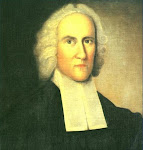I have taken my summary in the notes below in part from Mark Driscoll and Gary Breshears, Doctrine: What Christians Should Know and Believe (Wheaton, Ill.: Crossway, 2010), 287-96; Steven T. Davis, Risen Indeed: Making Sense of the Resurrection (Grand Rapids, Mich.: Eerdmans, 1993), 180-85; Paul Beasley-Murray, The Message of the Resurrection (Downers Grove, Ill.: Inter-Varsity, 2000), 246-55); John R. Frame, Apologetics to the Glory of God (Phillipsburg, N.J., Presbyterian & Reformed, 1994), 143-47; and William Lane Craig, Apologetics: An Introduction (Chicago, Ill.: Moody, 1984), 167-206. There are, of course, many more than just 11 reasons why we can say belief in the bodily resurrection of Jesus is credible and rational, and these works offer many such other reasons.
1. The best explanation for the radical transformation of the disciples of Jesus from a fearful band of followers who largely abandoned Jesus in his hour of greatest need into to a group of bold spiritual warriors who would risk their lives for the cause of the gospel and thereby turn the world upside down (Acts 17:6) is that they had encountered the resurrected Jesus Christ.
2. Jesus’ tomb was empty. When the disciples began to proclaim that Jesus had risen from the dead, their claims would have earned no reception at all if the body of Jesus still lay in the grave in a location widely known. In other words, if the tomb of Jesus were not empty, everyone would have dismissed out of hand the resurrection claims of the early church. The truth is that we have no record of anyone ever challenging the disciples’ claim of an empty tomb.
3. The Bible records that hundreds of people were eyewitnesses to the bodily resurrection of Jesus, including a group of more than 500 people at one time (1 Corinthians 15:4-8). Some critics have charged that the disciples were hallucinating when they saw Jesus risen from the dead, but we have no account from history of more than 500 people experiencing the same hallucination at the same time.
4. What is more, there is no indication from Scripture or history that the disciples and other witnesses to the bodily resurrection of Jesus were liars or lunatics. To the contrary, the Gospels show every indication of being careful and truthful accounts of the life of Jesus compiled from the eyewitnesses.
5. The Gospels testify that it was women who were the first to find the tomb of Jesus empty that Sunday morning (Luke 24:1-8), and it was a woman, Mary Magdalene, to whom the resurrected Jesus first appeared (John 20:11-18). In the Jewish world of Jesus’ day, the testimony of women was considered so inherently unreliable, it was inadmissible in court. Therefore, the only reason why, in Jesus’ world, the Bible would record that women were the first witnesses to the empty tomb and resurrection was that women in fact were the first witnesses to the empty tomb and the resurrection.
6. It is impossible to account for the origin of the Christian church apart from the bodily resurrection of Jesus from the dead. The claim that Jesus was the risen Lord lay at the heart of early Christian preaching (e.g., Acts 2:24-32; 17:31; etc.), and the early Christians risked their lives for the claim that the tomb was empty and Jesus had risen bodily from the dead.
7. The Gospels testify that the disciples and other early Christians were astounded by the bodily resurrection of Jesus and initially doubted that it had occurred (e.g., Luke 24:10-12; John 20:8-10, 24-25), even though Christ had informed them specifically at least three times before his crucifixion that he would die and rise again on the third day after death (Mark 8:31; 9:30-31; 10:32-34). In addition, there was no widespread expectation within Judaism in the 1st century A.D. that the Messiah would rise from the dead. Because the followers of Jesus were not expecting him to rise bodily, the only way to account for their subsequent bold testimony of Christ’s bodily resurrection was that they in fact had been eyewitnesses to that resurrection.
8. The Gospels have shown themselves to be historically reliable,[1] and there is no good reason to doubt the historicity of their accounts of the resurrection of Jesus.
9. The early church stopped worshiping the Lord on Saturday, the Jewish Sabbath, and began to worship on Sunday instead (Acts 20:7; 1 Corinthians 16:1-2; Revelation 1:10). There must have been a monumental event that occurred on a Sunday that would cause the early Christians to shift their belief about the correct day for Sabbath worship in the Fourth Commandment (Exodus 20:8-11), and the best explanation for that shift is that the early church worshipped the Lord on Sunday in commemoration of the bodily resurrection of Jesus on Sunday.
10. It is difficult in the extreme to account for the reality that billions of Christians for the last 2,000 years have affirmed as fundamental their belief in the bodily resurrection of Jesus (1 Corinthians 15:4) unless that event actually occurred in time and space.
11. Jesus’ own earthly family originally doubted his claims to be the Messiah (John 7:1-5; Mark 3:20-21), yet after the resurrection of Jesus, Mary and Jesus’ half-brothers had joined with the early Christians (Acts 1:14). It is hard to explain this transformation of the family of Jesus apart from a personal experience by them of the bodily resurrection of their son and half-brother.
[1] On the historical reliability of the four Gospels, see F.F. Bruce, The New Testament Documents: Are They Reliable?, 6th ed. (Downers Grove, Ill.: Inter-Varsity, 1981); and Craig Blomberg, The Historical Reliability of the Gospels (Downers Grove, Ill.: Inter-Varsity, 1987).
